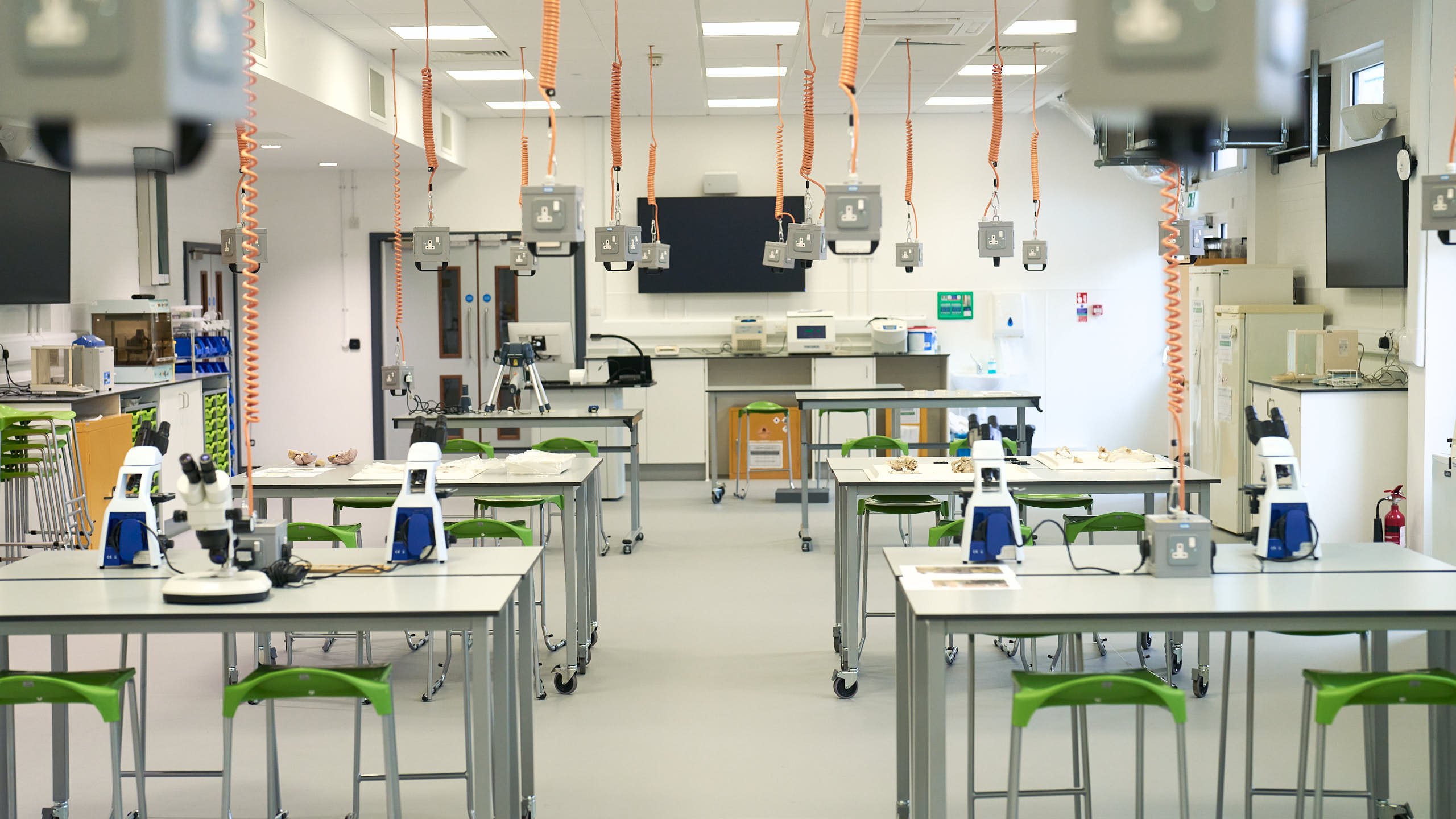RAU opens new £5.8m Land Laboratories in its 180th anniversary year

28 November 2025
Students at the Royal Agricultural University (RAU) have been enjoying lectures and practical sessions in the University’s brand-new Land Laboratories and Experimental Barn which were funded by a grant from the Office for Students (OfS).
The facilities, at the RAU’s main Cirencester campus, have not only improved teaching facilities for both undergraduate and postgraduate students, but have also further extended the capacity of research facilities and the associated research services offered by the University’s Laboratory Team.
The new laboratories – a conversion of the ground floor of the University’s existing Frank Garner teaching block – were facilitated by a £5.8m grant from the OfS, the maximum grant allocation available, and replaced the University’s old wooden lab block which dated from the mid-1930s.
Dr Esther Wilkinson, Director of Innovation and Learning at the RAU, said: “Our new laboratories and experimental barn are a tangible example of how the RAU, currently in its 180th anniversary year, continues to be at the forefront of agricultural education and research, and a key contributor to the land-based sector.
“These new facilities offer our students and lecturers a variety of teaching spaces, specially designed, and equipped with cutting edge equipment and the latest technology, to ensure a first-rate learning and research environment.
“We have a variety of laboratory spaces including wet and dry labs as well as bespoke areas for data processing, genomics, and microbiology. It’s really exciting to have them open with teaching taking place.”
Work on the new labs started early in 2024 and finished this May. The facilities were kitted out over the summer break and students and lecturers have been using them since the start of this academic year.
The University’s lab facilities extend beyond the RAU’s physical walls to its Living Lab, an experimental field space that is used for plot trials, data collection and teaching; a vineyard, where the grapes are grown and harvested to make the University’s award-winning Cotswold Hills wine; and a new multi-purpose experimental barn.
Dr Wilkinson added: “Our experimental barn lends itself particularly to experiential teaching and large-scale research activities, including large animal dissections and plant processing, due to the open nature of the space with minimal permanent fixtures.
“We are also very lucky to have access to the GREAT Market Garden Project, a market garden enterprise which adopts the no-dig method and is run in partnership with the Farming & Wildlife Advisory Group (FWAG) South West, on a seven-acre site adjoining our campus, and we also have access to a range of additional habitats and environments that can be utilised for experimental purposes, including arable, woodland, and grassland.
“Working hand in hand with our fantastic new laboratories, all these spaces support our continued commitment to offering outstanding learning experiences to our students. Our mission is to lead and contribute to high impact applied research, sharing our knowledge and facilities with researchers and commercial clients.”
The old wooden lab block has now been demolished and students, staff, and alumni have been asked to suggest designs for the newly released land at the centre of the University’s historic campus.
For more information about the RAU’s new laboratories, please visit https://www.rau.ac.uk/about-rau/laboratories.